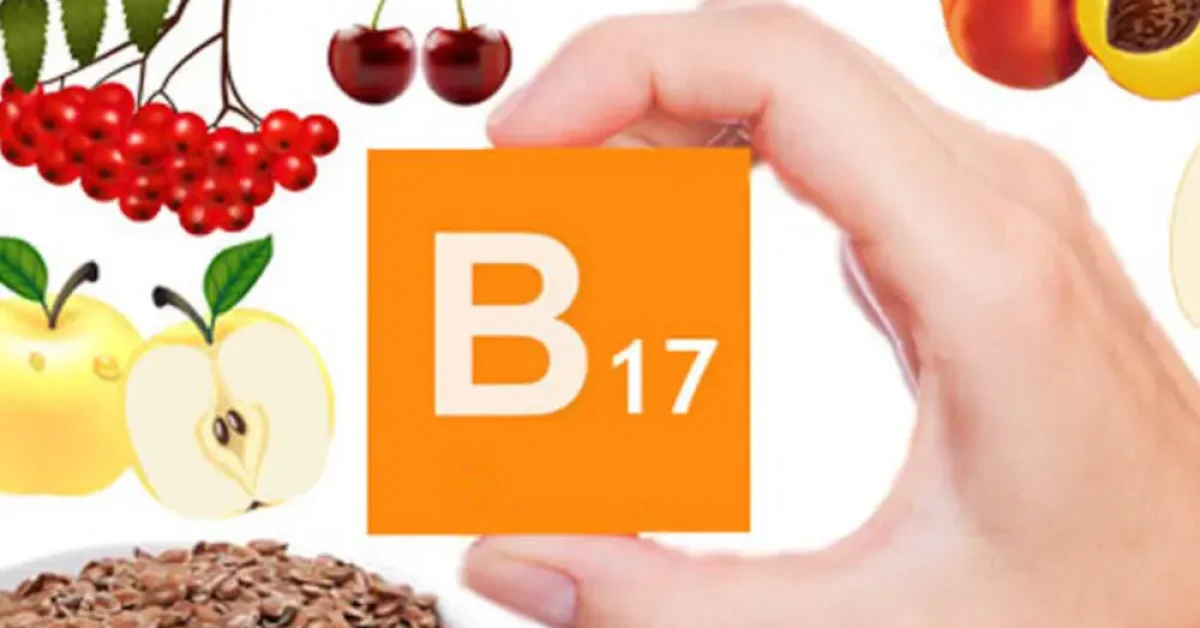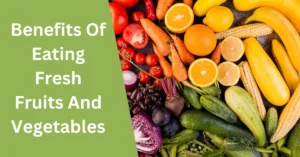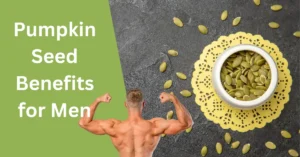Vitamin B17, also known as amygdalin, is a naturally occurring compound found in various seeds, pits, and kernels of certain fruits, as well as in some other plant sources. While its status as a vitamin is debated, it has garnered attention for its potential health benefits.
This article explores the significance of Vitamin B17 in human nutrition and its potential health benefits. From its reputed role in cancer prevention to its antioxidant properties, Vitamin B17-rich foods offer a natural source of this compound. Understanding the importance of including these foods in the diet can contribute to overall health and well-being.
Join us as we delve into the world of Vitamin B17 and uncover the reasons why incorporating Vitamin B17-rich foods into your diet may be beneficial for your health.
List of 7 Vitamin B17 Foods
1. Apricot Seeds
Description of Apricot Seeds: Apricot seeds are widely recognized as one of the most prominent sources of Vitamin B17. These small seeds contain amygdalin, the compound also known as Vitamin B17.
Nutritional Profile and Potential Health Benefits: Apricot seeds are rich in essential nutrients such as vitamin E, healthy fats, fiber, and minerals like manganese and iron. Some proponents suggest that apricot seeds may have potential health benefits, including antioxidant properties and support for immune function.
Ways to Incorporate Apricot Seeds into the Diet: You can enjoy apricot seeds by snacking on them raw, adding them to smoothies, sprinkling them on salads or yogurt, or grinding them into a powder for use in baked goods like muffins or energy bars.
2. Bitter Almonds
Introduction to Bitter Almonds: Bitter almonds are another significant source of Vitamin B17, closely related to sweet almonds. However, they contain amygdalin, the compound responsible for their bitter taste and Vitamin B17 content.
Comparison with Sweet Almonds and Safety Considerations: Bitter almonds differ from sweet almonds primarily in their amygdalin content, which can convert to cyanide in the body. Therefore, it’s essential to consume bitter almonds in moderation and with caution due to potential safety concerns.
Creative Ways to Enjoy Bitter Almonds: Despite their bitter taste, bitter almonds can be enjoyed in moderation by adding them to recipes like almond butter, almond milk, or almond flour-based dishes to add a unique flavor and nutritional boost.
3. Apple Seeds
Explanation of Apple Seeds: Apple seeds contain amygdalin, making them a lesser-known but potent source of Vitamin B17. While apple seeds are often discarded, they offer nutritional benefits worth considering.
Tips for Safely Consuming Apple Seeds: To safely consume apple seeds, it’s essential to avoid excessive intake due to their cyanide content. Chew apple seeds thoroughly or crush them and add them to recipes like homemade granola or oatmeal for a nutritious boost.
Recipes or Serving Suggestions Featuring Apple Seeds: Include crushed apple seeds in baked goods like muffins, pancakes, or bread for added texture and flavor. You can also sprinkle them on top of salads, yogurt, or oatmeal, or blend them into smoothies for a nutrient-rich boost.
4. Peach and Plum Seeds
Overview of Peach and Plum Seeds: Peach and plum seeds are natural sources of Vitamin B17, although they are often overlooked due to concerns about cyanide content.
Cautionary Notes Regarding Cyanide Content: Peach and plum seeds contain amygdalin, which can release cyanide when metabolized. Therefore, it’s essential to consume them in moderation and with caution to minimize the risk of cyanide poisoning.
Ideas for Incorporating Peach and Plum Seeds: Incorporate crushed or ground peach and plum seeds into recipes like baked goods, salads, or snacks to enjoy their unique flavor and potential health benefits.
5. Cherry Seeds
Description of Cherry Seeds: Cherry seeds, also known as cherry pits, contain amygdalin and are another fruit seed rich in Vitamin B17.
Discussion of Potential Health Benefits: Cherry seeds may offer potential health benefits due to their amygdalin content, although scientific evidence is limited. Some proponents suggest that consuming cherry seeds may support overall health and well-being.
Suggestions for Including Cherry Seeds in the Diet: Include crushed cherry seeds in smoothies, sprinkle them on salads, or mix them into homemade granola or energy bars for a nutritious and satisfying snack option.
6. Legumes: Lima Beans and Mung Beans
Introduction to Lima Beans and Mung Beans: Lima beans and mung beans are plant-based sources of Vitamin B17 that offer numerous nutritional benefits.
Nutritional Benefits of Legumes: Lima beans and mung beans are rich in protein, fiber, vitamins, and minerals, making them valuable additions to a balanced diet.
Recipe Ideas Featuring Lima Beans and Mung Beans: Incorporate lima beans and mung beans into meals by adding them to soups, salads, stir-fries, or bean-based dips for a nutritious and satisfying meal option.
7. Wild Blackberries
Exploration of Wild Blackberries: Wild blackberries are natural sources of Vitamin B17 and offer a delicious and nutritious addition to your diet.
Comparison with Cultivated Blackberries: Wild blackberries differ from cultivated blackberries in their growing conditions and flavor profile. While cultivated blackberries are larger and sweeter, wild blackberries tend to be smaller, more tart, and richer in nutrients, including Vitamin B17.
Ways to Enjoy Wild Blackberries: Enjoy wild blackberries fresh as a snack or incorporate them into various dishes and desserts. Add them to smoothies, yogurt parfaits, or oatmeal for a burst of flavor and nutrition, or use them to make jams, jellies, pies, or cobblers for a delicious and nutritious treat.
Conclusion
Incorporating Vitamin B17-rich foods into your diet can provide a variety of nutritional benefits and potential health advantages. From apricot seeds and bitter almonds to apple seeds and cherry seeds, these natural sources of Vitamin B17 offer a unique combination of nutrients that can support overall well-being.
While it’s essential to enjoy these foods in moderation and be mindful of potential safety concerns, such as cyanide content in certain seeds, the diverse array of options allows for creativity in meal planning and culinary exploration. Whether enjoyed raw, crushed, or incorporated into recipes, each of these foods offers a distinct flavor profile and nutritional profile that can enhance the diversity and nutrient density of your diet.
By including Vitamin B17-rich foods in your meals and snacks, you can take a proactive approach to supporting your health and nourishing your body with essential nutrients. Remember to consult with healthcare professionals for personalized dietary advice and guidance, especially if you have specific health concerns or dietary restrictions.
In conclusion, embracing a diet rich in Vitamin B17 foods can be a delicious and rewarding way to prioritize your health and well-being, one nutritious bite at a time.








